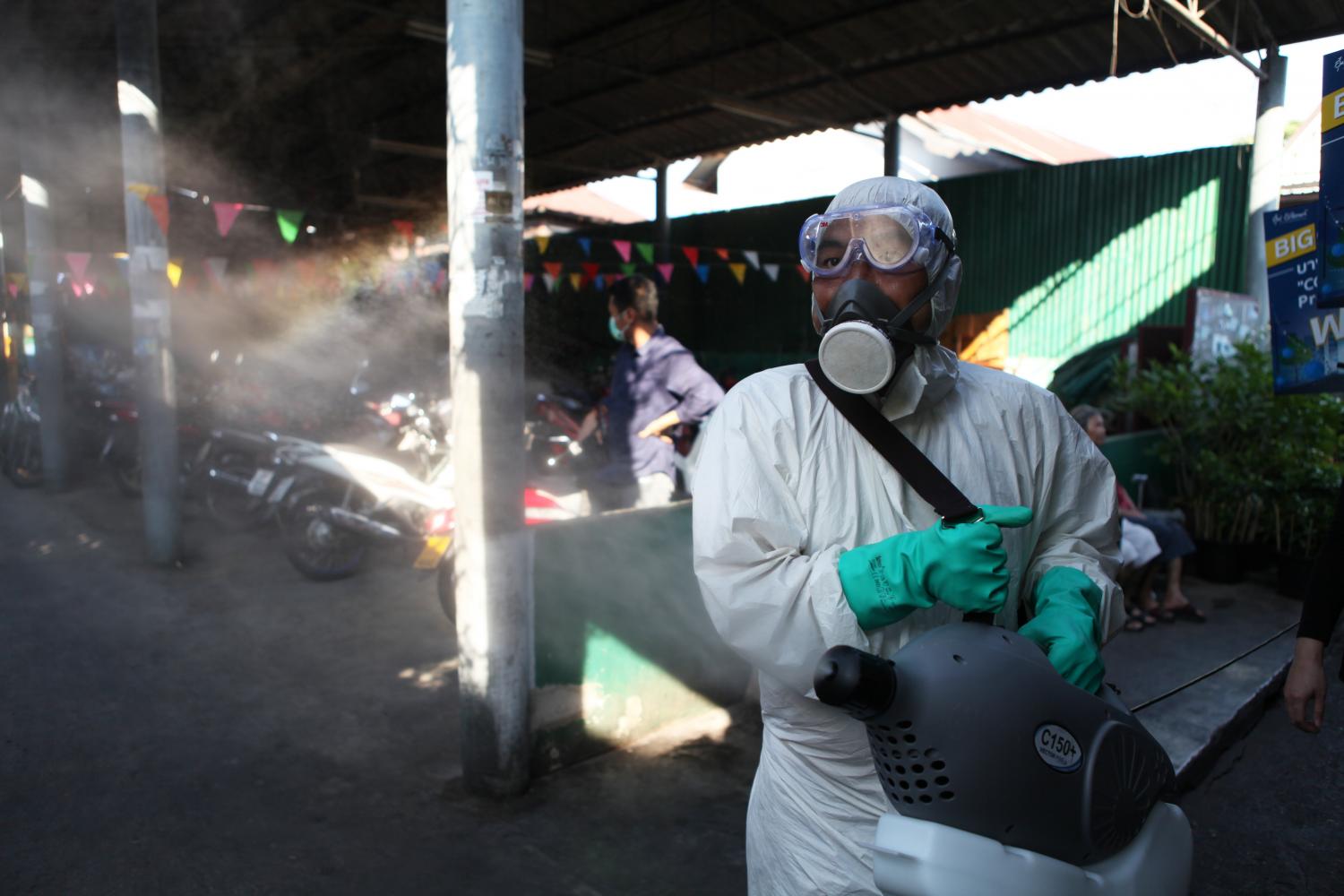
Capital market veterans and an academic have voiced opposition to the government's plan to set up a stabiliser fund to support the jittery stock market, saying this type of fund would not shore up confidence that has been diminished by the coronavirus pandemic.
The Finance Ministry, the Stock Exchange of Thailand (SET) and the Bank of Thailand have been asked to devise an initiative to manage heightening volatility and stabilise market conditions after a series of heavy sell-offs on Thailand's bourse, Deputy Prime Minister Somkid Jatusripitak said recently.
A new stabiliser fund must therefore be "sizeable" to accommodate the domestic equity market, Mr Somkid said.
The cabinet is set to consider approving a large-enough fund in a meeting scheduled for Tuesday.
The government would not use taxpayers' money for setting up a stabiliser fund, but could opt to raise new funds or utilise the existing Vayupak Fund to inject an additional 100 billion baht. The fund's investment units would then be sold to institutional and retail investors, with an investment mandate focused on investing in equities making up the SET50 and SET100 indices.
The Vayupak Fund was set up in 1992 and again in 2003 with capital of 10 billion and 100 billion baht, respectively. The SET index rose by 16.7% and 20% within three months of those events, according to Asia Plus Securities (ASP).
But the market capitalisation of about 12 trillion baht for Thailand's stock market has outgrown the 1-2 trillion baht value seen in 1992 and 2003, meaning a stabiliser fund would yield inefficient results, ASP said.
If the government budget were used to set up the fund, "this would be a waste of public spending, as the capital could be used for medical purposes instead of stabilising Thai stocks", said independent academic Somjai Phagaphasvivat.
"The government seems to be on the wrong end of sorting priorities to mitigate the pandemic," Mr Somjai said.
Assessing when the pandemic will end is impossible, he said, with a global economic recession poised to occur even under an assumption that the outbreak will conclude this year.
Pattera Dilokrungthirapop, chief executive of DBS Vickers Securities Thailand, said setting up a stabiliser fund would not help support stock market conditions that much, due to the market's large market cap.
"If the Finance Ministry wants to set up a stabiliser fund, the question is where will they get the funding from and how large should this fund be," Mrs Pattera said.
Offering a tax deduction incentive for equity investment would be better in terms of shoring up local equities through long-term investment, she said.
"Thailand is going through a dangerous period with the pandemic," Mrs Pattera said. "The government should spend on important and urgent issues instead of focusing on economic growth."
Chaiyaporn Nompitakcharoen, executive vice-president of Bualuang Securities, agreed with the idea of bolstering stock market conditions and economic growth via a personal income tax deduction and a tax privilege for long-term investment in Thai equities.
While the government has postponed Songkran and other festivities until further notice, there are still no measures in place to prevent people from commuting from Bangkok to other provinces in order to contain the outbreak, Mr Chaiyaporn said.
